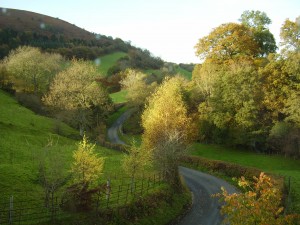As I hinted before, one of the reasons I’ve started this blog is that I’m intending to self-publish a trilogy of books set in ancient Greece with a mythological twist. I’ve had the usual reasons which, alas, many writers are familiar with these days from publishers who don’t want to take them – but one pops up more frequently than most; books set in the past don’t sell, they say.
The current acceptable mode still seems to be fantasy. I’ve nothing against fantasy; I read fantasy and science fiction with pleasure, and I’ve written fantasy novels myself. But it’s sad that at the moment it seems to be the only thing going. There’s much good fantasy out there, but also plenty of dire stuff – too many ‘feisty’ sword-slashing heroines ( why do feisty heroines have to behave like violent men?) too many Chosen Ones finding their way among dragons and orcs and elves to the Throne that awaits them.
When I was a young reader, there wasn’t that much fantasy around. What I loved, and what expanded and excited my imagination, was historical fiction. Impossible to imagine my reading days without Rosemary Sutcliff, without Geoffrey Trease. Historical fiction, well-told, breathed life into the dull dates and statistics of history lessons , and told us valuable things about how our present world had got to be the way it was. It reminded us that people managed to live, and live full lives, in circumstances which we couldn’t imagine in our comfortable middle-class households, that human nature was really unchanged over the centuries. And looking at how the Romans performed their task of conquering the world taught lessons, many not quite comfortable, about how the British had attempted to do the same, and left red smears all over the school maps we then used. I think misguided political correctness was one reason why both conventional history teaching and historical fiction fell out of fashion in the 70s and 80s – history obviously needs to be taught in a different , less imperialistic way now, but it’s still just as important as it ever was.
Above all, it was fun. I loved charging about in the Middle Ages, or the seventeenth century, or Elizabethan London – or just about any-when as long as it was vividly and imaginatively described. Also, much of it was gender-neutral; boys could identify with heroines and girls with heroes without really noticing that they were crossing the sex-divide. I’ve still got some of those precious books on my shelves now; I’m looking at Ransom For A Knight by Barbara Leonie Picard, Redcap Runs Away by Rhoda Power, The Gloriet Tower by Eileen Meyler, Sun Faster, Sun Slower by Meriol Trevor (great time-travel, this,) lots of Rosemary Sutcliff, of course. Others, equally precious, have got lost, stolen or strayed over the years. Somewhere, there should be, but I can’t find, Henry Treece’s Thirteen Banners and Rosemary Sutcliff’s The Armourer’s House in a lovely OUP edition with illustrations by C.Walter Hodges – the illustrators were as important to me as the writers; so few books seem to be illustrated any more – a great shame.
I think my proudest moment ever as a writer was when Geoffrey Trease gave one of my books a kind review – I was quite overwhelmed; that someone who was a near-deity of my youth had actually read one of my books and had enjoyed it was almost too much to take in. I remember I sat down and wrote a gushing over-ebullient letter of joy which I then tore up and reworked through several drafts, cooling it down in a very Lucy-Snowe-ish way until what I finally sent to Geoffrey Trease probably didn’t contain much sense of the excitement which I felt but found so hard to communicate. I’m a bit sorry about that now – I think I could have gushed a bit more. And he was a nice man – I’m sure he wouldn’t have minded.
I know I’m not the only one to be saying these things – the excellent History Girls blog has been doing great stuff in publicising new historical fiction, and I hope they’re winning the battle for the rest of us.
What other historical novels do my fellow readers remember from their youthful days? Or didn’t you read it at all? Do tell me. I’d love to hear. I hope to print my top ten list in my next blog – I wonder if you’ll share any of them.


